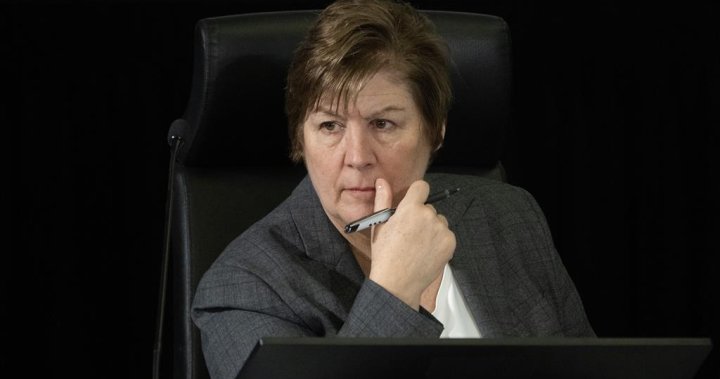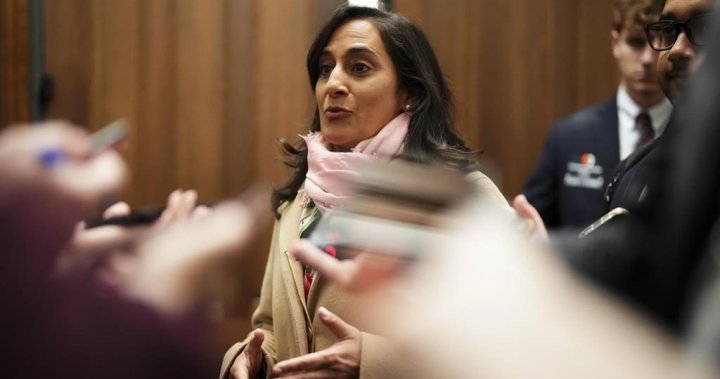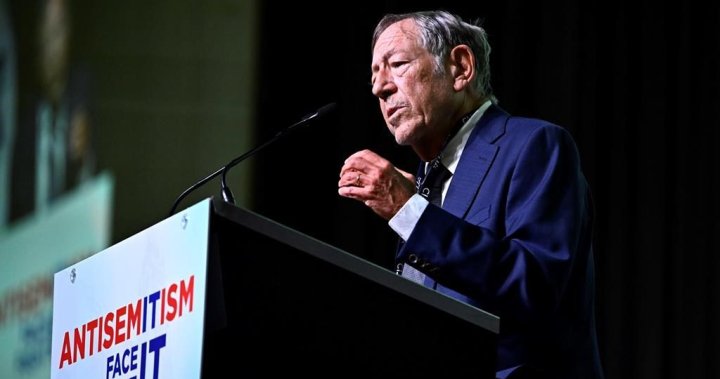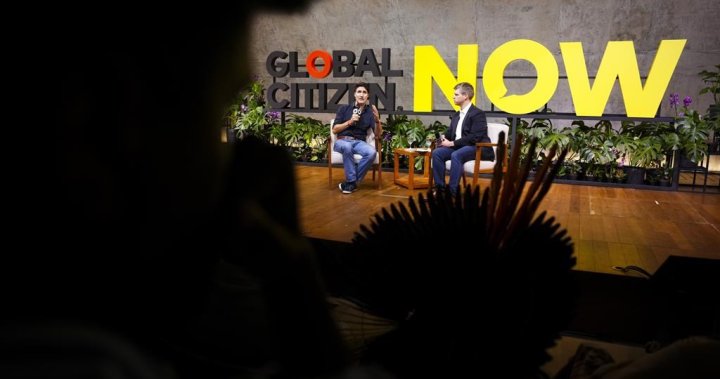RCMP dismisses investigation into money laundering ring suspected of links to PRC – National

The RCMP has declined to investigate an alleged money laundering ring linked to the People’s Republic of China (PRC) as it determined that shutting down the scheme would have “no significant impact.”
According to documents released Thursday by the Federal Commission on Foreign Interference, the RCMP was informed of the existence of a “money laundering network linked to organized crime and the activities of the PRC (interference by foreign actors )”.
Deputy Commissioner Mark Flynn, head of the federal police, said he had made the decision not to pursue the investigation because it would not make much difference.
“When asked if a financial crime unit could investigate the network, Deputy Commissioner Flynn asked what impact a successful financial crime investigation would have on the wider problem,” it reads in a summary of his testimony.
“Given that multiple backup networks could be used for money laundering activities, it was felt that a successful investigation into a financial crime would not have a significant impact. Deputy Commissioner Flynn ultimately refused the request because the proposed investigation did not have enough impact to warrant a higher priority.
This is just a glimpse of the broader issue of foreign interference in Canada, the subject of Justice Marie-Josée Hogue’s federal inquiry. But it highlights two significant problems in how Canada counters the threat of foreign influence: the link between hostile powers and organized crime in Canada, and the lack of federal resources to devote to combating complex interference operations.

Get the latest national news
For news impacting Canada and around the world, sign up to receive breaking news alerts sent directly to you as they happen.
The RCMP has an annual budget of $6 billion. But that money is shared between federal policing – areas like white-collar crime, national security and protection of visiting politicians and dignitaries – and everyday front-line policing in several provinces and territories.
This tension has long been an identified problem within the national police force, which is divided between specialized, in-depth investigations and more mundane responsibilities like speeding tickets and maintaining order.
In 2023, the federal Liberals set aside $48.9 million over three years for the RCMP to combat foreign interference activities. But Flynn testified that “the need for specialized interventions (from foreign actors) is increasing and already exceeds capacity” and that “the need for additional resources is expected to increase significantly.”
Another obstacle to investigations into foreign interference was highlighted in documents released by the commission Thursday: the difficulty of using information collected by intelligence agencies as evidence in criminal prosecutions.
Intelligence agencies, both in Canada and in allied countries, collect large amounts of information on people of interest. But not all intelligence products can be used in criminal trials – either because they do not meet the standard of proof or because they risk revealing how agencies collect their information.
“(Flynn) explained that this issue may limit the RCMP’s ability to investigate activities related to (foreign actor interference) because the RCMP generally becomes aware of these activities through intelligence, both domestic and foreign. international,” says the summary of the interview.
“When international partners share intelligence, it is typically accompanied by caveats requiring the RCMP to protect sensitive information from disclosure, limiting the RCMP’s ability to exploit the intelligence received in criminal investigations .
All of these factors could help explain why, despite findings from Hogue’s investigation and the National Security and Intelligence Committee (NSICOP) that federal candidates and some lawmakers knowingly participated in foreign interference operations , the country has not seen any criminal prosecution in these operations. imported.
Hogue’s inquiry is expected to hear testimony until Oct. 16, when Prime Minister Justin Trudeau is scheduled to appear before lawyers for a second time. The inquiry will also hear from senior civil servants, intelligence officials and ministers in the coming weeks.
Hogue’s final report is expected to be delivered to the government by the end of the year.
© 2024 Global News, a division of Corus Entertainment Inc.



















